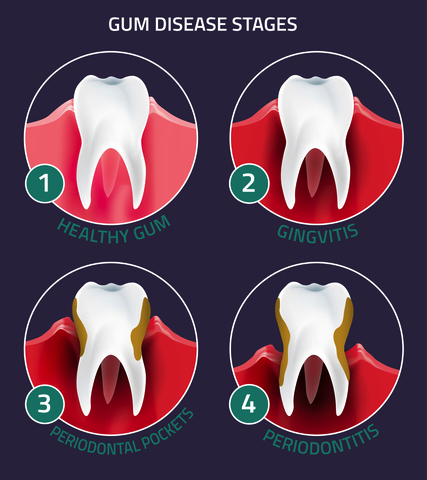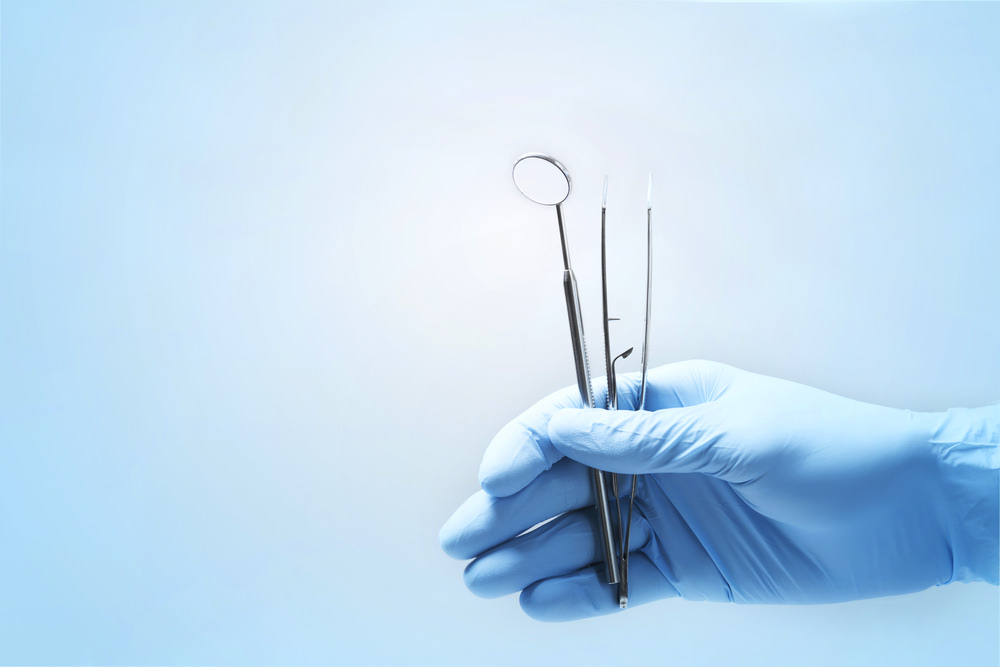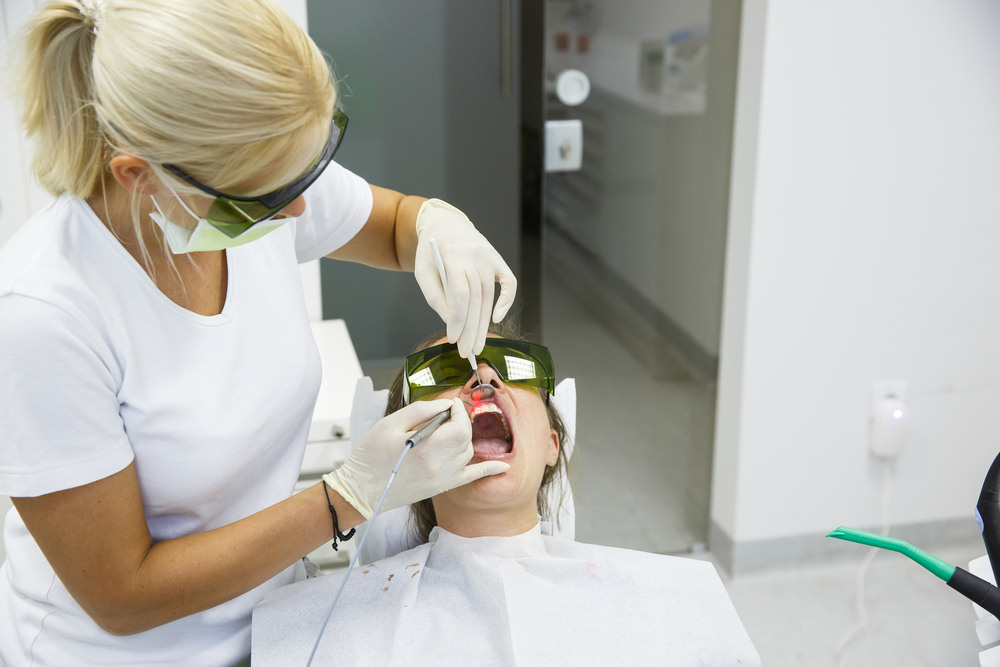Gingivitis Explained
Ever had inflammation around your teeth and gums before? If this is the case, it is likely you’ve had gingivitis.
The bacteria found in gingivitis and periodontal disease is a form of spirochetes and is one of the oldest living elements on the planet.
Let me say that again – it is one of the oldest surviving living elements on the planet!
I don’t know about you but I have the urge to start brushing my teeth! 🙂
Prevention is key when dealing with any form of inflammation within the body and gingivitis is no different.
Jump to Contents
- What is Gingivitis?
- What is the Cause of Gingivitis?
- 4 Tips to Reduce Your Chances of Developing Gingivitis
- Does it Cause Bad Breath?
- Does Bacteria Have an Odour?
- What does Gingivitis Look Like in Your Mouth?
- Gingivitis and Gum Disease: Are They Related?
- How to Treat and Cure Inflammation Around Our Gums
- 4 Ways You Can Prevent Gingivitis and Gum Disease
- Do Mouthwashes Work?
- What is the Microbiome?
- Pregnancy and Gingivitis
- Brushing Your Tongue: Is it Beneficial?
What is Gingivitis?
Gingiva is the dental term for the gum that surrounds your teeth. When they become inflamed, it’s called gingivitis.
Once you have issues with inflammation, this can lead to other, more severe conditions, such as gum disease.
What is the Cause of Gingivitis?
It all starts with bacteria.
The bacteria known as biofilm develops over time. What is biofilm I hear you say!?
Biofilm is a fancy way of saying plaque.
Now this plaque which accumulates around your teeth and gums starts off as a mushy substance, becoming quite hard with time.
When it hardens, it becomes impossible to get off using a toothbrush or floss, and only a dentist can remove it.
So, if you’re not cleaning your teeth, consistently you’ll develop biofilm which can cause complications down the track.
Another thing that adds to the speed in which plaque develops is your diet.
If your diet is high in sugars, it will feed the type of bacteria that’s in your mouth.
Huffington Post had a great article on 8 foods and drinks that contain too much sugar.
5 Tips to Reduce Your Chances of Developing Gingivitis:
- Brush your teeth twice a day for 2 mins.
- Floss once a day.
- Visit your dentist twice a year (every 6 months).
- Reduce your intake of sugary foods and drinks.
- Reframe from smoking.
Does it Cause Bad Breath?
Gingivitis is one of the causes of bad breath or halitosis as it’s scientifically called
The plaque that builds up on your teeth and around your gums causes the unfortunate smell you might have.
According to the Mayo Clinic, there are many causes for bad breath but most start in the mouth.
The very thought of having bad breath can cause a lot of stress and worry for many people.
Does Bacteria Have an Odour?
Bacteria that is on the surface of your body or even internally like in your mouth will have an odour.
If there is a smell, dentists see it as an imbalance in your body, that’s all.
If I can smell something that’s going on in a patient’s mouth I know it’s just a matter of imbalance.
Dr V
Say you had a root canal and the nerve inside your tooth has been dead for a while. If your dentist opened up the tooth, the smell would be quite putrid.
Why is this?
Because the bacteria has built up gas inside the dead tooth.
There are many areas in which odours can occur.
It could be coming from your tongue. The coating on your tongue is an indicator of how healthy you are.
The odour could also be coming from the tonsils.
There are these things called tonsillar stones which accumulate in the pocket of the tonsils.
These stones are your body’s defences and it’s trying to accumulate the bacteria from going down into your gullet.
If you put this tiny little nugget on your finger and smelt it, the smell may be bad.
One indication of how healthy you are is how strong your natural body odour is.
Dr V
If your diet is mainly plant-based and you have adequate hydration, and you’re a healthy individual you shouldn’t have a smell.
What Does Gingivitis Look like in Your Mouth?
There are varying degrees of gingivitis.
When you have the smallest amount of inflammation the gum might seem red and swollen, even bleeding.
But if it’s left untreated then it becomes worse with time it can evolve into periodontitis. This leads to tooth decay and other possible health complications.
Gingivitis and Gum Disease: Are they Related?
Yes, they are. Gingivitis is a mild form of gum disease, affecting the surface part of the gum.
If not removed or treated on a regular basis that hard calculus, as dentists call it, sticks to the tooth and starts to go deeper.
You might know calculus by another name; which is tartar.
It is the same thing, a calcified buildup that attaches to the enamel of your teeth.
As it progresses, it will start to affect the structure which holds your tooth to the bone.
This structure is called the periodontal (supporting) ligament.
Once calculus moves into the ligament, it is then called periodontitis which is gum disease.
How to Treat and Cure Inflammation Around Our Gums?
Treatment is always debridement, meaning your dentist removes the plaque buildup from around your teeth.
If it’s formed a calculus, you won’t get it off with the regular dental hygiene techniques that you can do at home.
You have to go to a dentist and let them scrape it off. The thing is; the longer it’s there, the harder it will be to remove.

Having a smooth surface will allow the ligament and the gum tissue to come back and form a seal with the tooth once again.
It cannot reconnect if there are any bacteria in the area.
The moment you put the bacteria back you start the process all over again.
Dr V
So, it’s crucial that it’s appropriately cleaned by your dentist.
With a clean environment, you will form a reattachment between your teeth and the gums.
“It really is technique sensitive, it has to be done correctly, and there has to be a maintenance program instilled for the patient to maintain healthy teeth and gums.” Dr V.
1. Debridement (removal of dental plaque)
This is always number one. If you’re not flossing your teeth or brushing correctly, you will develop inflammation.
There are also now special little brushes called dental picks or interdental brushes, which you can put between the teeth.
These are incredibly effective and help reduce food build up between your teeth.
Whatever your preference, flossing or using picks, removing the food from between your teeth is crucial.
2. Diet
If you’ve got a high, sugary diet, you will feed the bacteria. This causes the plaque cementation process to stick to the teeth.
Try eating more alkaline foods. These include fresh vegetables such as spinach, broccoli, asparagus and green beans.
A good rule of thumb; if you want foods that are alkaline in nature search for the green, vibrant types.
A great list of alkaline foods can be found on avocadoninja’s webiste.
Things you can reduce eating would be bread and pasta, artificial sweeteners and condiments.
3. Breathing
The health of the mouth is dependent upon keeping your lips together and breathing through your nose. Breathing through your mouth can set the whole process going again.
By decreasing saliva, your natural defence system in your mouth is down.
4. Hydration
It’s essential that you have enough water during the day to ensure that the health of the mouth is maintained.
Do Mouthwashes Work?
A very controversial topic indeed.
There are people for and against using mouthwashes for dental hygiene purposes.
Mouthwash may stop the bacteria from forming due to its alcohol content. Given this, it’s going to be more of an antibiotic effect in the mouth.
If you’re going to be using mouthwash, don’t swallow it. Swallowing it can affect the microbiome in your gut. This could upset the entire balance of your natural flora.
You can’t actually keep your teeth clean with mouthwash, the plaque hasn’t been physically removed and will only mask the symptoms.
Dr V
There are some things you can try instead of mouthwash:
- Visiting your dentist more regularly.
- Improve your diet.
- Drink plenty of water.
- Breathe through your mouth.
What is the Microbiome?
The microbiome is your, let’s say a collection of bacteria in the mouth, your gut and whole body.
It also occurs in the arteries, in your organs, even your brain.
Bacteria are divided into two groups; good and bad. Who would have thought!
To be healthy, what you’re trying to do, with the gut primarily, is to keep the good bacteria in. Studies have shown fermented foods, probiotics, things like kombucha are worthwhile.
These are referred to as “live foods” which has been documented to help your microbiome.
How do they do that?? Live foods help the good bacteria in the gut to digest and to absorb the nutrients of what you eat.
Pregnancy and Gingivitis
Women that are pregnant get a surge of hormones, so everything changes in the body.
You’ll get more blood volume and the temperature of your body increases.
Your bones are getting ready for the birth so, yes, that also causes susceptibility.
It’s important during pregnancy that the mother-to-be is more vigilant with her diet and dental hygiene habits.
We asked Dr V about her standpoint on pregnancy:
I personally don’t like doing anything during the time of pregnancy because there’s a factor of anxiety.
Dr V
As soon as possible after your baby arrives, please see your dentist and get a thorough checkup and clean.
Any damage to your teeth and gums during your pregnancy should be rectified quickly.
Brushing Your Tongue: Is it Beneficial?
Brushing the tongue, it’s almost like you’re taking care of the symptoms.
Unless you’re getting to the cause of what is creating your odour, you can brush all you like; it’s just not going to do much.
In dentistry, they look for the cause: “We can treat symptoms all we like; it’s still going to continue until we find out where it’s all coming from” states Dr V.
To answer the question, yes brushing your tongue is beneficial but as a part of your positive dental hygiene routine.
Our whole idea in dentistry and medicine is about balance.
Dr V
Conclusion
If you can take 3 things away with you from reading this post about gingivitis, they would be the importance of; 1. Diet, 2. Dental hygiene and 3. Visiting your dentist regularly.
Making sure you have a balanced diet with plenty of fresh vegetables and reduced amounts of sugary foods; this will help your dental health greatly.
Dental hygiene is something that you can control on a regular basis. Coupled with diet, you have the opportunity to avoid gingivitis altogether.
Visting your dentist twice a year will reduce your chances of getting gum disease dramatically so go ahead and pick up that phone and make an appointment!
Remember gingivitis is a reversible condition but it must be treated early.
It’s never too late to change those negative habits into positive ones.
Are you going through pain from gingivitis inflammation?
By Dr. V
Created at January 22, 2018, Updated at January 25, 2025




















